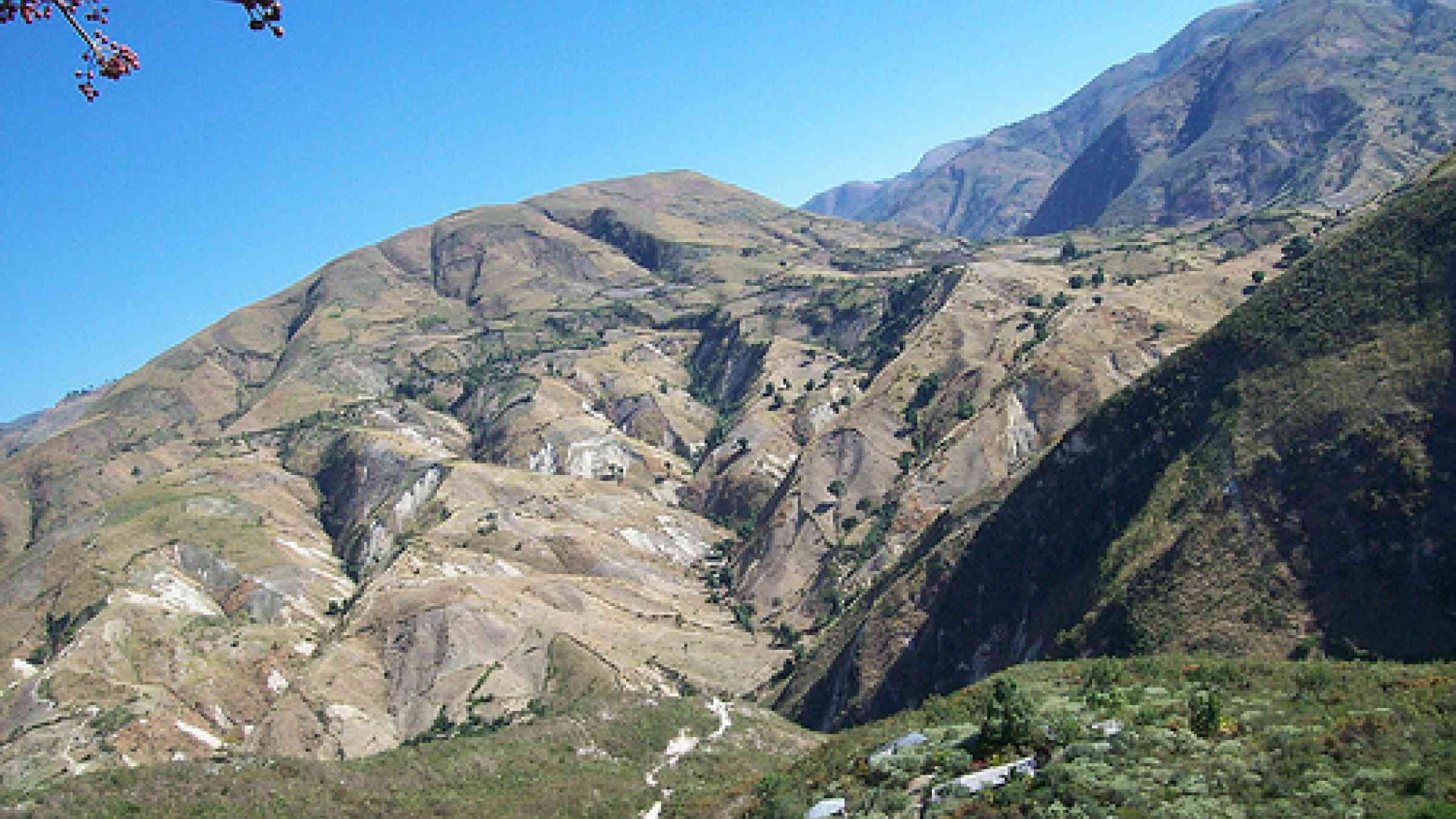Oxfam: Hurricanes, hunger and homelessness for the people of Haiti if world leaders do not act against climate change

The people of Haiti, having survived political turmoil, food insecurity and four hurricanes last year, could be pushed over the brink if world leaders do not act at the UN climate talks next month, Oxfam warns.
In a new report, Haiti: A Gathering Storm, the international development agency highlights how drought and more intense and frequent hurricanes are risking the lives and livelihoods of people trying to make ends meet against the odds.
A year after four hurricanes battered the island, affecting almost 900,000 people, people are still living in temporary accommodation and are dependent on food aid. The hurricanes caused damage valued at 15 per cent of GDP, derailing economic growth.
Scientific climate models predict that hurricanes will become more frequent and intense and Haiti, placed in the hurricane path in the Caribbean and the poorest country in the western hemisphere, is the most vulnerable.
A Haitian toxic cocktail
Oxfam’s Haiti country director Yolette Etienne said: “World leaders meeting at the UN climate talks in Copenhagen must remember that they are not just negotiating numbers and targets, but negotiating lives. This year’s El Nino prevented further hurricanes, which was a blessing because Haiti, still deeply scarred from last year, would have struggled to cope. However, next year is likely to bring more and the island has not yet recovered, let alone been able to protect itself properly.”
The report reveals how climate change is an added deadly ingredient to a Haitian toxic cocktail: food insecurity and soaring food prices, poverty and mass deforestation. More than 98% of trees have been cut down to make charcoal, leaving bare slopes vulnerable to landslides when bad weather strikes.
Oxfam’s suggested solutions include reforestation and diversifying tree species, identifying alternative fuels, increasing public awareness and helping communities adapt and protect themselves to the changing weather patterns.
“We have to look at all aspects to tackle the affects of climate change in Haiti, both in the long and short term,” Etienne continued. “We need international support to do this properly and this must start in Copenhagen.
“Rich countries, who are responsible for causing climate change, must take their responsibility and commit to reducing emissions and finance adaptation for developing countries.”